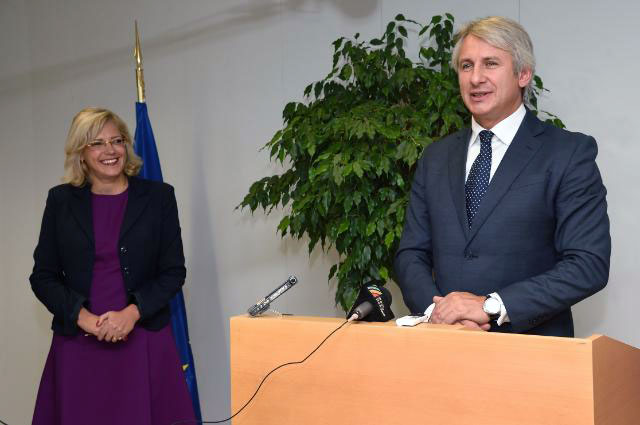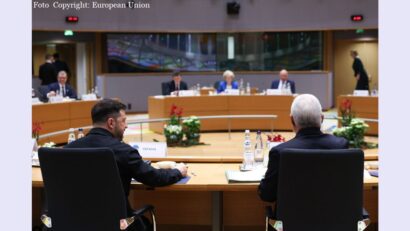Romania-EU Partnership
At Romanias request, the European Commission has agreed to revise the operational program for 2007-2013 so that the salaries of those working in the EU fund absorption field should become eligible and should be fully reimbursed by the European Commission

Corina Cristea, 04.11.2014, 14:06
“Europe’s challenges cannot wait.” That is the motto of the new European Commission, headed by Jean-Claude Junker, who started their mandate on November 1st. Boosting economy, creating jobs, taking firmer measures regarding migration and pursuing a more coherent foreign and security policy are among the priorities of the new European Commission, whose main goal is to rebuild citizens’ trust in the EU28. Romania, a European Union member since 2007, will contribute to that goal being reached through its representative, the new EU Commissioner for Regional Policy, Corina Cretu.
Commissioner Cretu’s portfolio is one of the most important ones in terms of EU fund management, with almost 352 billion Euros to be invested in various regions of the member states, between 2014 and 2020. Romania is among the countries in high need of attracting such funds. That might be one of the reasons why Corina Cretu’s first meeting of her term in office was with Romania’s Minister for European Funds, Eugen Teodorovici.
On that occasion, the two officials announced the new financing regulations for the remuneration of the staff working in the project management field. At Bucharest’s request, the European Commission has agreed to change the operational program for 2007-2013 so that the salaries of the staff in the EU fund absorption field should become eligible and should be fully reimbursed by the European Commission. The European Commission will pay those salaries based on a performance fostering payment scheme.
The new assessment system will be enforced on January 1st, 2015. The Brussels meeting focused on the preparations for the launch of the Partnership Agreement with Romania on the 7th of November in Bucharest, with EU Commissioner Cretu attending. Corina Cretu will spell out the way in which the European structural and investment funds will be used in the next few years.
Minister Eugen Teodorovici: “It was a very useful discussion to benefit the entire country, so that we should be able to close the current financial framework at the highest possible level next year. I’d like to emphasize again the 80% target for the current financial framework. The absorption rate is 44% at present. I am convinced that next year Romania will be able to close the current financial framework at an as high level as possible.”
According to Corina Cretu, the European Commission deems exceptional Romania’s fund absorption rate increase, from 4% in 2012 to over 40% in 2014. Adding up are the reforms Bucharest has implemented in recent years.






























